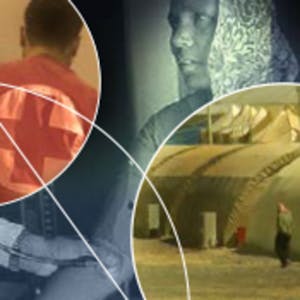Non-Communicable Diseases in Humanitarian Settings
NCDs are the leading cause of death in almost every region of the world, and place a huge burden on individuals, families and societies. Humanitarian settings have a negative effect on the levels of disease, and the possibility of treatment. The importance of NCDs in global health is acknowledged by their inclusion in the Sustainable Development Goals, which call for a reduction of a third in premature mortality from NCDs by 2030. However, NCDs have until recently received little attention in humanitarian settings, leaving prevention, care and treatment needs largely unaddressed among some of the most vulnerable populations. According to the World Health Organization, 70 percent of global deaths are due to NCDs. The four main disease groups which cause the greatest number of deaths are cardiovascular disease, cancer, diabetes and chronic obstructive pulmonary disease (including asthma).The course will provide knowledge about issues and dilemmas that occur around NCDs in humanitarian settings and possible solutions.
Why are NCDs a problem in humanitarian emergencies or crises? Natural disasters and complex emergencies, including armed conflict, have a negative effect on the levels of disease, and on the possibilities for preventing, treating and caring for people with NCDs. People living with NCDs often need continuous care to avoid disease progression, and disrupted treatment due to natural disaster or emergencies pose a large health challenge. In conflict situations and fragile contexts, the challenge of disrupted care and treatment may be exacerbated – an estimated 65 million people have been forcibly displaced by conflict, displacement lasts longer, and at times health systems and health personnel are deliberately targeted.
None
Syllabus
Syllabus - What you will learn from this course
Week 1
Module 1: Why is it important?
In module one you will learn about why NCDs have increased in the world as a whole and about why NCDs are a particular problem in humanitarian emergencies or crises. Natural disasters and complex emergencies including armed conflict may have a negative effect, both on the levels of disease, and on the possibilities for preventing, treating or caring for people with NCDs.
Week 2
Module - What is being done?
In module two you will learn about some of the basic approaches of humanitarian action and how they might that apply to NCDs. This would include basic concepts, and how they might help or hamper the response to NCDs.
Week 3
Module: Challenges and Opportunities
In module three you will learn about prioritization (the classical first priority for health response to save lives, and concentrate on excess mortality and morbidity), the importance of risk analysis (the risk equation), the challenges involved in transition from acute to longer term assistance – from blueprint to contextualizing and building capacity – as well as about longer term budgetary issues.
FAQ
When will I have access to the lectures and assignments?
Access to lectures and assignments depends on your type of enrollment. If you take a course in audit mode, you will be able to see most course materials for free. To access graded assignments and to earn a Certificate, you will need to purchase the Certificate experience, during or after your audit. If you don't see the audit option:
What will I get if I purchase the Certificate?
When you purchase a Certificate you get access to all course materials, including graded assignments. Upon completing the course, your electronic Certificate will be added to your Accomplishments page - from there, you can print your Certificate or add it to your LinkedIn profile. If you only want to read and view the course content, you can audit the course for free.
Is financial aid available?
Yes. In select learning programs, you can apply for financial aid or a scholarship if you can’t afford the enrollment fee. If fin aid or scholarship is available for your learning program selection, you’ll find a link to apply on the description page.
Reviews
Really interesting and great real life examples and case studies.
Nice mix of readings to broaden knowledge.
it has been a great for me to have experience on this kinds of course.
This course is incredibly interesting and well structured
Coursera is very nice and easy way to uptade your knowledge ,have participants have numerous choices of courses and can do the course of their choice.overall I am happy with this.
